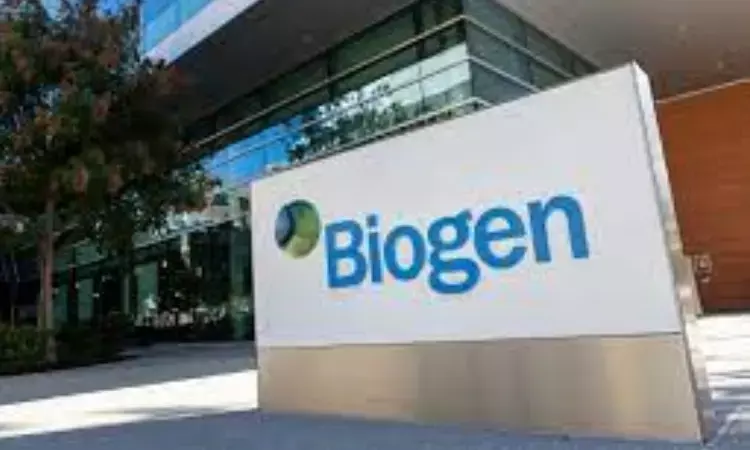- Home
- Medical news & Guidelines
- Anesthesiology
- Cardiology and CTVS
- Critical Care
- Dentistry
- Dermatology
- Diabetes and Endocrinology
- ENT
- Gastroenterology
- Medicine
- Nephrology
- Neurology
- Obstretics-Gynaecology
- Oncology
- Ophthalmology
- Orthopaedics
- Pediatrics-Neonatology
- Psychiatry
- Pulmonology
- Radiology
- Surgery
- Urology
- Laboratory Medicine
- Diet
- Nursing
- Paramedical
- Physiotherapy
- Health news
- Fact Check
- Bone Health Fact Check
- Brain Health Fact Check
- Cancer Related Fact Check
- Child Care Fact Check
- Dental and oral health fact check
- Diabetes and metabolic health fact check
- Diet and Nutrition Fact Check
- Eye and ENT Care Fact Check
- Fitness fact check
- Gut health fact check
- Heart health fact check
- Kidney health fact check
- Medical education fact check
- Men's health fact check
- Respiratory fact check
- Skin and hair care fact check
- Vaccine and Immunization fact check
- Women's health fact check
- AYUSH
- State News
- Andaman and Nicobar Islands
- Andhra Pradesh
- Arunachal Pradesh
- Assam
- Bihar
- Chandigarh
- Chattisgarh
- Dadra and Nagar Haveli
- Daman and Diu
- Delhi
- Goa
- Gujarat
- Haryana
- Himachal Pradesh
- Jammu & Kashmir
- Jharkhand
- Karnataka
- Kerala
- Ladakh
- Lakshadweep
- Madhya Pradesh
- Maharashtra
- Manipur
- Meghalaya
- Mizoram
- Nagaland
- Odisha
- Puducherry
- Punjab
- Rajasthan
- Sikkim
- Tamil Nadu
- Telangana
- Tripura
- Uttar Pradesh
- Uttrakhand
- West Bengal
- Medical Education
- Industry
USFDA decision on Eisai, Biogen Alzheimer's drug due in January

Eisai in March downsized its role in Aduhelm, but remains the leader in the 50-50 partnership's lecanemab program.
New Delhi: The U.S. Food and Drug Administration will expedite its review of Eisai Co Ltd's and Biogen Inc's experimental Alzheimer's drug lecanemab, with a decision due by Jan 6, 2023, the companies said on Tuesday.
Lecanemab, like the partners' previous drug Aduhelm, is an antibody designed to remove sticky deposits of a protein called amyloid beta from the brains of people with early Alzheimer's, a disease that leads to memory loss and the inability to care for oneself.
The FDA controversially approved Aduhelm in June last year, although only one of two late-stage trials showed it helped slow cognitive decline. The FDA's own panel of outside experts had advised against approval.
Biogen subsequently slashed its price for the drug to $28,000 per year from an initial $56,000. But Medicare, the U.S. government health plan for people over age 65, this year said it would only pay for Aduhelm if patients were enrolled in a valid clinical trial, serving to sharply curtail the medication's use.
Eisai in March downsized its role in Aduhelm, but remains the leader in the 50-50 partnership's lecanemab program.
Shares of the Japanese company jumped on the news, gaining more than 4% in Tokyo trade and making Eisai the second-biggest gainer on the benchmark Nikkei 225.
Under the FDA's accelerated pathway, lecanemab needs to show it can effectively interfere with underlying changes that lead to Alzheimer's dementia, rather than prove any impact on cognition. Such a "biomarker" would be the level of amyloid proteins in the brain.
That is the same standard the FDA used for approving Aduhelm - leaving many critics unconvinced of the drug's efficacy.
Eisai said it would have results from a large, Phase 3 trial of lecanemab available this fall, which will answer the question of whether the drug has an impact on cognitive ability.
The 1,800-patient study is designed to show that the drug can slow the rate of cognitive and functional decline by at least 25%.
"Here in the U.S. we obviously will do our very best to make lecanemab available within the allowable coverage by different payers," Ivan Cheung, Eisai's U.S. chairman, told Reuters.
He said initial "top-line" results from the trial are expected by late September.
Eisai said the FDA has agreed that results from that trial can serve as a confirmatory study to verify the clinical benefit of lecanemab. Depending on those results, Eisai said it could seek full FDA approval of the drug before the end of its current fiscal year on March 31, 2023.
The company said it initiated in March an application with Japan's Pharmaceuticals and Medical Devices Agency, and aims to file for approval of lecanemab during that same time period based on the Phase 3 trial results.
Pending the trial findings, Eisai said it also plans to submit a new drug application in Europe.
Read also: Biogen, Samsung Bioepis launch USFDA approved BYOOVIZ in US
Ruchika Sharma joined Medical Dialogue as an Correspondent for the Business Section in 2019. She covers all the updates in the Pharmaceutical field, Policy, Insurance, Business Healthcare, Medical News, Health News, Pharma News, Healthcare and Investment. She has completed her B.Com from Delhi University and then pursued postgraduation in M.Com. She can be contacted at editorial@medicaldialogues.in Contact no. 011-43720751


